Audio Data Processing & Computer Analysis
The flowchart and stage descriptions below show how the Eclipse Soundscapes team handles and analyzes eclipse audio data from ES Data Collectors. This page outlines the steps from receiving and sorting data to uploading, segmenting, sharing, and comparing Power Spectral Density (PSD). This process will ensure that data is well-organized, analyzed for significant changes, and shared properly. The final step, currently in development, will involve data analysts who will investigate any identified changes. We are currently in stage 3, segmenting data into 1- and 3-minute chunks.
Stage 1
Receipt & Sorting:
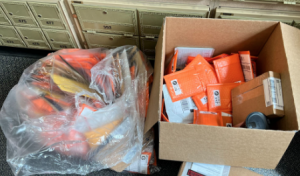

- Receive and sort online location data and MicroSD card submissions
- Match location notes with MicroSD cards using ES ID#s (Manually enter location notes that are only provided on paper)
- Use location data to determine eclipse percentage and maximum time.
- No Offline or Online Location Notes: If no location notes are available, the data cannot be used.
Note: The maximum eclipse time that is determined based on location is the time frame that is shared and analyzed in later stages.
Stage 2
Upload & Backup Raw Data:
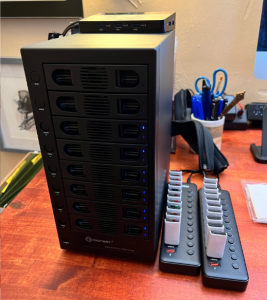

- Ensure MicroSD Card AudioMoth Serial # Matches ES ID Registration;
- YES: Proceed to upload raw data.
- NO: Delay due to manual entry needed.
- Upload raw data and backups for each data set
- Ensure that each MicroSD card has audio data and time and determine if it has audio data for April 6,7, and 8th
Stage 3
Segment Data:
- Split data into 3-minute chunks for sharing and 1-minute chunks for computer analysis. (Only data sets with audio files on 8/6, 8/7, and 8/8 will continue to data analysis.)
Stage 4
Share Segmented Audio Data:
- Upload eclipse maximum audio and previous days’ data to the ARISA Lab YouTube channel.
Stage 5
Power Spectral Density (PSD) Computer Analysis:
- Cricket Frequency PSD: Computer analysis to determine Power Spectral Density (PSD) for dates 8/6, 8/7, and 8/8 and if there is a significant change on eclipse day. Results are expected to be published by the ES team.
- Overall PSD: Computer analysis to determine PSD for the same dates and if there is a significant change on eclipse day. Results will be made public to provide Eclipse Soundscapes community with the opportunity to engage in data analysis. More information in the ES Data Analyst Role coming soon!
2024 ES Audio Recording Sites Map
The map below shows the locations where audio data for the 2024 Eclipse Soundscapes project was recorded and shared with the ES team. The recordings are being analyzed for any changes that occurred due to the total solar eclipse on April 8, 2024. The map also illustrates the eclipse path. The ES team is still receiving data, and this map was updated on June 5, 2024. If the map does not load, or if you want to view it in a separate tab, click here.
491 MicroSD Cards Being Processed & Prepped for Analysis
- 340 Sites are on the total solar eclipse path
- 151 Sites experienced a partial solar eclipse
To view the ES ID #, latitude and longitude, and eclipse coverage %, click on the pin in the map.
To view the total eclipse sites or the partial eclipse sites in isolation, click on the square in the top left corner of the map to change the map layers.
Data Receipt List
The embedded Google spreadsheet lists information based on ES ID#. It shows whether we’ve received your location information via the online form and your microSD card, as well as your data processing group. If the Data Receipt List spreadsheet doesn’t load or you want to open it in another tab, click here.
Have we received your data, and what stage is it in?
Step 1: Check the "Data Receipt List"
The “Data Receipt List” is updated regularly. It will show whether we’ve received your online form (location notes) and your microSD card. It will also show your data processing group number.
Note: If you still have questions about the status your data, check the FAQs section.
We process all audio data in groups. To find which stage your data is in, first identify its group. Groups are based on when we received your online form and MicroSD card, and whether the data is from on or off the solar eclipse path. You can determine your Data Processing group numbers by reviewing the Data Receipt List, located in the tab above or by clicking here.
Step 2: Check the chart below to see your group's processing stage.
If the Data Progress by Group Number spreadsheet doesn’t load or you want to open it in another tab, click here.
Map of Eclipse Soundscapes 2024 Audio Data Sites by Data Sorting & Processing Groups
If the map doesn’t load or you want to open it in another tab, click here.
To sort the map by group, click on the square with the arrow in the top left corner of the map.
ES Learning Community
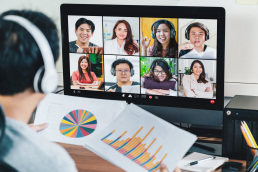

Eclipse Soundscapes collected sound data and observations from the October 2023 annular and April 2024 total solar eclipses to study their impact on U.S. ecosystems. As we process and share this data, we’ll provide updates through webinars, social media, and our email list. We’ll also highlight similar projects, so stay involved for more insights!
Upcoming Webinars
Echoes of the Night Sky: How AudioMoth Technology is Enhancing Nocturnal Migration Research
October 23, 2024 3pm-4pm EDT
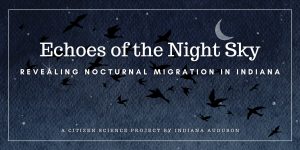

Eclipses, Awe, and a Feeling of Belonging in Participatory Science
November 6, 2024 4pm-5pm EST
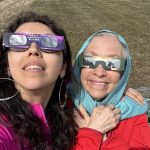

Join us for a special webinar featuring an interview with Dr. Kelly Lynn Mulvey, Associate Professor of Psychology at North Carolina State University, as she shares her insights on the emotional and scientific impacts of the Eclipse Soundscapes project. Dr. Mulvey will discuss how the project increased participants’ sense of belonging in science—especially for female-identifying individuals—and evoked powerful feelings of awe, particularly for those closer to the path of totality. Attendees who register will have the unique opportunity to help shape the conversation by submitting questions for Dr. Mulvey in advance. Don’t miss this engaging and interactive event—register today and be part of the discussion! In your registration email confirmation, there will be a link to vote on which questions we’ll ask Dr. Mulvey.
Previous ES Learning Community Webinars
Harnessing AudioMoths for Nighttime Nature Conservation
Recorded 8/21/2024
In this recorded Eclipse Soundscapes Community webinar, Don Ficken of Dark Sky Missouri discussed two projects using AudioMoths, donated by the Eclipse Soundscapes community, to protect nature at night. The first project, Nocturnal Flight Calls – Lights Out Heartland, analyzes nocturnal bird calls during migration to encourage turning off lights at night. The second project captures nighttime sounds to connect the public and conservationists with nocturnal wildlife and promote reducing outdoor lighting. Both projects are being piloted in St. Louis with plans to expand. The webinar highlighted how AudioMoths support scientific exploration. You can also read more in our August Blog post titled “Blog – Dark Sky Missouri Uses AudioMoths to Study Nature at Night.”
Audio Data Upload & Processing Information Webinar
Recorded 5/28/2024
In the May 28 Audio Data Upload and Processing Information Webinar, the Eclipse Soundscapes team shared our progress on uploading and processing audio data from the 2023 Annular solar eclipse and the 2024 total solar eclipse and our plans for managing the large volume of data.
Post Eclipse Webinar: Participation Stats & Data Processing Insights
Recorded 4/30/2024
In this webinar following the 2024 eclipse, the Eclipse Soundscapes (ES) team discusses the participation numbers for the Eclipse Soundscapes Project and explains Stage 1 of initial data processing, which involves receiving online location information and physical MicroSD cards from ES Data Collectors and organizing and sorting those submissions to prepare for audio data upload and computer processing.
To view the Google Slides used in this webinar click here.